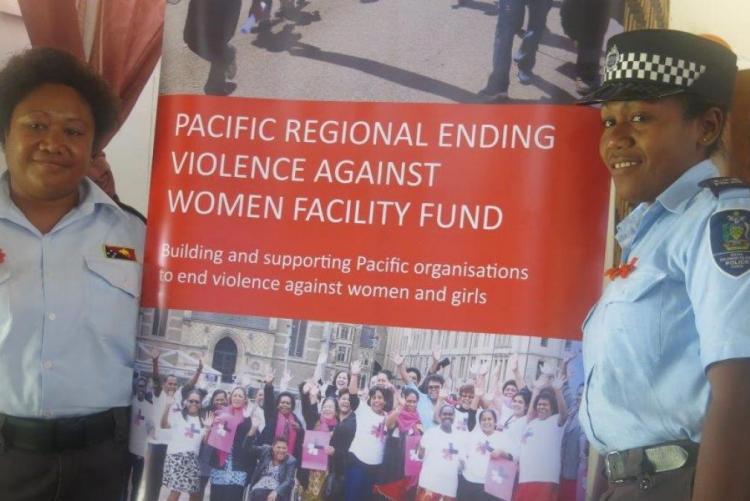The Solomon Island people pride themselves on having the family unit as the foundation of their communities, essential to their lives. However, like in most nations, Family Violence is an issue affecting many families in Solomon Islands.
Ending Domestic Violence In Solomon Islands
A 2009 report from the Ministry of Women Youth and Children’s Affairs found that 2 out of 3 women aged between 15 and 49 years had been abused, and placed the Solomon Islands as the third worst country in the world for Family Violence behind Ethiopia and Peru.
Since then little has happened to change that status, although there is a growing awareness among the community of the impact of Family Violence on the family unit and community groups are becoming more vocal in their opposition to Family Violence.
Commissioner of Royal Solomon Islands Police Force (RSIPF) has indicated his desire to include the ‘Crime Prevention Strategy 2015-2017’ as the lead operating model. One of the priority areas of the Strategy is Families. In 2009 the World Health Organisation listed the Solomon Islands as the 3rd worst country in the world for family violence.
These statistics prompted the formation of a small working group the Legislative Working Group. This small group in conjunction with many stakeholders wrote the Family Protection Bill. This important legislation was completed in July 2014 and was passed by the Solomon Islands Government in August 2014. It is still to be gazetted (the Target date is 1 April 2016).
It is common perception of both males and females in the Solomon Islands that when a male pays “bride price” for a female he then has the right to treat her as he wishes, this can include but not limited to violent frequent beatings, sexual assault and emotional abuse. Family Violence can also be seen as a “cultural issue” and so unfortunately is treated as such by the community as a whole. This leads to a majority of women refusing to report acts of violence against them therefore it is not treated as the criminal act that it is, thus allowing many offenders to go unpunished and the violence to continue.
Gender based violence has largely been normalised in the Solomon Islands with 73 per cent of men and 73 per cent of women believing that violence against women is justifiable, particularly when it relates to infidelity, disobedience or when women don’t live up to the roles prescribed by society. Violence against women is seen as acceptable as a form of discipline, with some men suggesting that women could improve their situation by learning to obey men (World Conference on Social Determinants of Health, 2011).
The Family Protection Bill 2014 sets out the offences for Family Violence, assistance to victims and their families, advice, counselling, preventative measures and awareness of family violence and the consequences for police if they do not take and act on Family Violence reports. It has far reaching implications for failure by police to do so.
This Bill also includes such things as Police Safety Notices (PSN), Interim Protection Orders and Protection Orders.
The RSIPF Family Violence and Community Policing team are committed reducing the prevalence of Family Violence by ensuring that the Family Protection Act is well ingrained into the daily operating procedures of all members of the RSIPF along with Community engagement and awareness programmes.
In June 2015, the Melanesian Spearhead Group also developed the MSG Declaration on Family Violence. This was presented at the forum and was supported and signed by MSG members.
Project Orange
The colour ‘Orange’ has been declared by United Nations as the dedicated colour to highlight and represent Violence against and Women and Children. This coincides with the significant date of 25th November, which is White Ribbon Day.
The 25th of each month has been declared by the United Nations as a milestone date and in every country where United Nations has a presence, particularly the Pacific. Police and other partner groups will campaign to bring public awareness to Violence against women.
The RSIPF Family Violence team have taken on the role as a lead, along with SIG Ministry for Women and Children and United Nations Women to promote the awareness of the significance of the colour orange and the 25th of each month.
Starting 20th November will be ‘16 Day of Activism’. These events highlight sixteen (16) separate events where awareness of Gender Equity are highlighted. Themes include: business, violence, education, success, leadership etc. The 25th of November is International White Ribbon day and will be heavily promoted with Project Orange.
Every significant stakeholder in the Solomon Islands has been consulted with and declared the following slogan as the 2015/16 catch cry : ‘You Me Stan Tugeda For Endim Vaelens’
‘You Me Stan Tugeda For Endim Vaelens’
Activities include travelling ‘road shows and awareness campaigns where RSIPF staff promote awareness of family violence and violence against women. The displaying and wearing of the Orange colour is paramount to the visual/mental impact and delivery of the message. It is a strong brand and is being promoted worldwide.
The RSIPF and partnership agencies and Ministries encourage everyone to participant in activities.
Click here to read more about Seif Ples, the Sexual Assault and Domestic Violence Clinic

